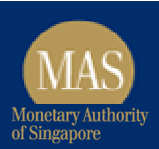Compliance
Singapore's Regulator Eases Banks' Red Tape, Capital Burdens

With COVID-19 wreaking havoc on normal financial life, the Singaporean regulator is cutting some slack for banks and other organisations over capital requirements and deadlines, for example.
The Monetary
Authority of Singapore is lightening the regulatory and
supervisory tests it imposes on banks and other institutions to
allow for relief efforts against the disruption of COVID-19. The
move mirrors steps of tax and regulatory authorities worldwide to
ease filing and other requirements.
The watchdog said it will take the following steps:
-- adjust banks’ capital and liquidity requirements, to help
sustain their lending activities;
-- allow FIs to take into account the government’s fiscal
assistance and banks’ relief measures in setting more realistic
accounting loan loss allowances;
-- defer FIs’ implementation of the final set of Basel III
reforms, margin requirements for non-centrally cleared
derivatives, and other new regulations and policies, to ease FIs’
operational burden;
-- allow FIs more latitude on submission timelines for regulatory
reports and defer non-urgent industry projects; and
-- suspend regular onsite inspections and supervisory visits
until further notice.
The worldwide pandemic has upended all manner of reporting
deadlines, banks' capital standards and other tests that are
standard parts of the financial system. In many cases regulators
around the world have pushed back deadlines and sought to soften
the blow of rules still in place.
MAS said that it is adjusting banks’ capital and liquidity
requirements.
The regulator said it “encourages banks to utilise their capital
buffers as appropriate to support their lending activities”.
“Banks in Singapore can afford to do this because they have
managed their businesses prudently and have built up healthy
capital buffers over the years. Our banks have sufficient capital
to see them through the current economic slump while continuing
to supply credit to the economy to support businesses and
individuals,” MAS said.
MAS said maintaining lending activities “should take priority”
over dividend pay-outs. “While MAS does not see a need to
restrict banks’ dividend policies, the release of capital buffers
should not be used to finance share buybacks during this period,”
it said.
The watchdog said it will allow banks to recognise more of their
regulatory loss allowance reserves as capital, making it easier
for banks to lend. The relief period will apply until 30
September 2021, and may be extended if necessary, MAS said.
Banks will also be able to use their “liquidity buffers” as
necessary to meet liquidity demands. To support banks’ lending
activities, MAS will adjust the Net Stable Funding Ratio
requirement.
Deferrals
The regulator said that it will defer the implementation of the
final set of Basel III reforms by one year for banks in
Singapore.
“While the reforms are necessary to strengthen the banking system
over the long term, they will require banks to make considerable
operational adjustments which they would be hard pressed to make
under the current challenging conditions,” it said.